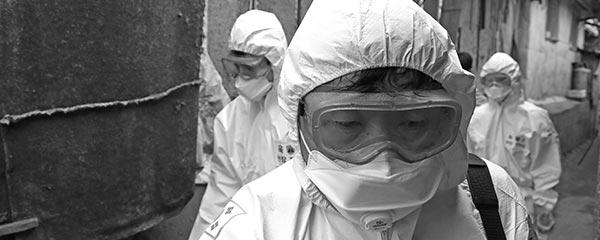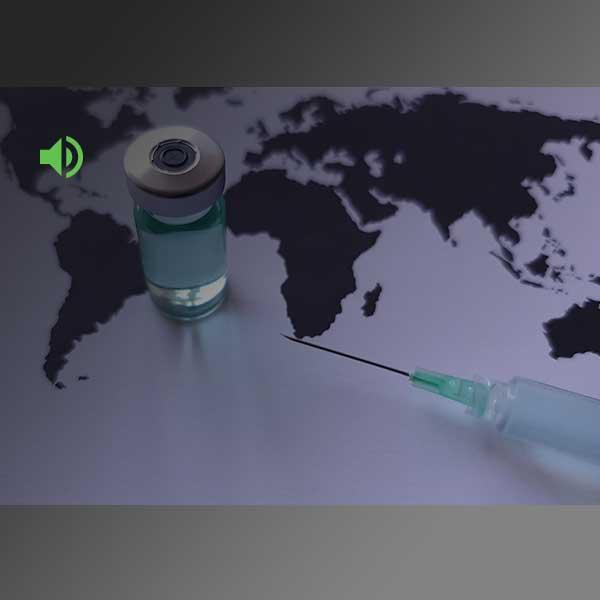Even before COVID-19 vaccines became widely available in 2021, the world was placing more trust in science and scientists than it did before the pandemic.
A new report, , reveals that more than four in 10 people worldwide in 2020 expressed "a lot" of trust in science (41%) and the scientists in their respective nation (43%). Both figures are up nine percentage points from the last Wellcome Global Monitor study in 2018.
By comparison, trust levels in other key institutions or professions -- including the national government, people who work at charitable organizations or nongovernmental organizations (NGOs), and doctors and nurses -- also increased, but not nearly to the same degree.
| 2018 | 2020 | Change | |
|---|---|---|---|
| % | % | pct. pts. | |
| Trust scientists in this country "a lot" | 34 | 43 | +9 |
| Trust science "a lot" | 32 | 41 | +9 |
| Trust scientists "a lot" to find out accurate information about the world | 29 | 37 | +8 |
| Work scientists do benefits "most" people in this country | 41 | 47 | +6 |
| Wellcome Global Monitor | |||
General perceptions of science also improved. For instance, 37% said they trust science "a lot" to find accurate information about the world, up from 29% in 2018. Likewise, 47% said in 2020 that the work of scientists benefits "most" people in their country, compared with 41% who offered this opinion in 2018.
Trust Increases Most Among Those Who Know Less About Science
Trust in scientists improved among many different demographic groups and oftentimes in a uniform but interesting way. Perhaps the most striking example is by level of science knowledge. In both 2018 and 2020, the Wellcome Global Monitor asked people how much they know about science.
While those who reported knowing "a lot" about science were the most likely to say they trust it, trust in science rose among all people, regardless of how much they said they know. The largest increases were among those who said they know "some" or know "not much" or "nothing at all" about science.
| 2018 | 2020 | Change | |
|---|---|---|---|
| % | % | pct. pts. | |
| Know "a lot" about science | 66 | 69 | +3 |
| Know "some" about science | 39 | 48 | +9 |
| Know "not much" or "nothing at all" about science | 25 | 33 | +8 |
| Wellcome Global Monitor | |||
The Wellcome Global Monitor found a similar trend when looking at levels of science knowledge versus trust in scientists. Trust increased most among those who reported having less knowledge about science.
| 2018 | 2020 | Change | |
|---|---|---|---|
| % | % | pct. pts. | |
| Know "a lot" about science | 61 | 63 | +2 |
| Know "some" about science | 39 | 47 | +8 |
| Know "not much" or "nothing at all" about science | 28 | 37 | +9 |
| Wellcome Global Monitor | |||
Implications
Across a host of different measures, global perceptions of science improved in 2020. Compared with how they felt in 2018, adults across the world are now more likely to see science benefiting most people and explaining the world around them. More than anything, many more instill a high level of trust in scientists.
Notably, these trends predate the arrival of a publicly available COVID-19 vaccine, which may have further improved the standing of scientists and science in people's eyes.
Interestingly, this rising trust was driven uniformly across many demographics. But global increases were most pronounced among those who reported knowing less about science. The Wellcome Global Monitor report speculates that "increased exposure to science and scientists as a result of the pandemic may have influenced public opinion in many countries" and perhaps endeared more trust for science among those who still feel they have a lot to learn.
To find out more about perceptions during the time of the pandemic, check out Wellcome's newly released report: .
To stay up to date with the latest Â鶹´«Ã½AV News insights and updates, .
For complete methodology and specific survey dates, please review .
Learn more about how the works.




